Ambrose Doge Builds 30-Bedroom Eveleigh House In 1844 Sackets Harbor
Constructed and opened in 1844 by Ambrose Dodge, the Eveleigh House was one of three hotels in Sackets Harbor at the time, the other two being the nearby Union Hotel, which still stands today on the corner of Ray and W. Main Street, and the Earl House, which burned in 1900 (both were constructed in 1817.) The Eveleigh House became a landmark over the course of its 76 years, the only hotel in the village as of 1900, and considered one of the most historic hotels in this part of the state.
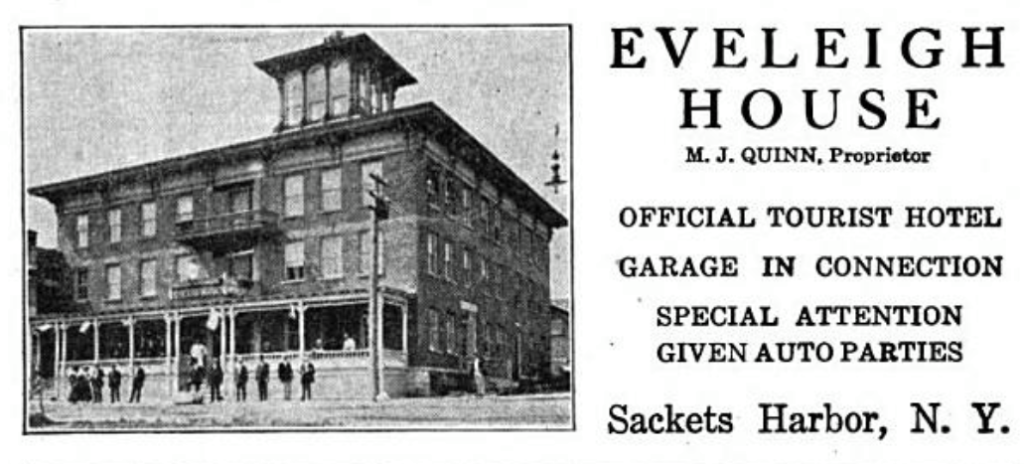
President Ulysses S. Grant, who, once stationed at Madison Barracks as Lieutenant, reportedly made the Eveleigh House his headquarters during winter. His foot race from Sackets Harbor to Watertown, amongst other officers, began at the Eveleigh house as the starting point. Later that evening, the hotel hosted a banquet for the participants in their dining room.
Going back to its origins, the first hotel in the village of Sackets Harbor was a small one-and-a-half-story frame structure built by Ambrose Pease before 1805. It changed hands to a gentleman from Cape Vincent named Mr. Kelsey at the start of the war of 1812 and burned shortly thereafter. Though it was located on Main Street, it wasn’t the same site on which Eveleigh House was built; that was first occupied by a hotel built in 1806, finished by Stephen Simmons, who operated it for some years.
In 1873, the railroad connecting Watertown to Sackets Harbor, constructed by Col. George Flower, Watertown’s first mayor and brother to Roswell P. Flower, was completed, connecting the city directly to the shores of Lake Ontario and opening the doors to more tourism. The Watertown Daily Times wrote of the first train to run between the two points on Dec. 7–
A half hour’s ride towards the lake shore and the spires and “ship house” of the pleasant little village appeared in view, and a few moment’s afterwards the train stopped cross Main Street, and the party alighted in a rain storm. Shelter was soon found with Beardsley at the “Eveleigh House,” and with Earl at his well regulated establishment.
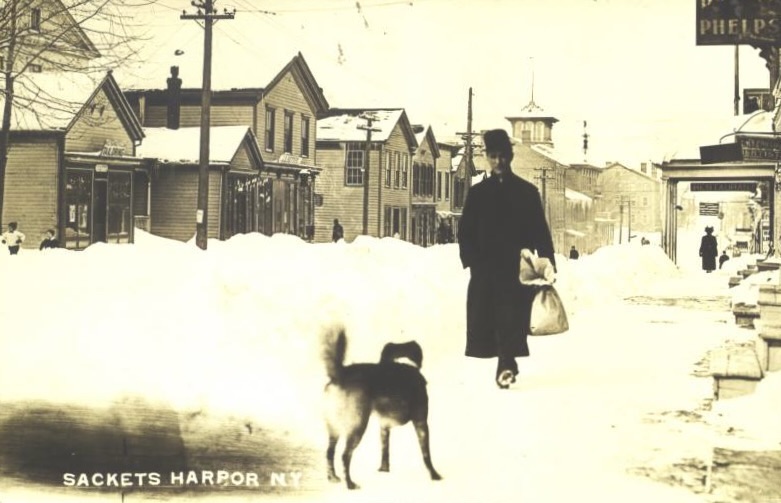
The “riders on the storm,” so to speak, were entertained at the Eveleigh House, where food was prepared to feed several hundred in an elegant dinner that was described as the best part of the trip. The ship house, built to hold the frigate New Orleans constructed during the later stages of the War of 1812 but never completed, was arguably a tourist attraction itself, touted as being well worth a trip of 100 miles to see the relic from the old war. The Eveleigh House was described as being “not more than a dozen rods (approximately 198′) from the railroad depot and the wharf, and one of the best hotel structures in the county.”
Over its 76-year history, the Eveleigh House had a number of proprietors. For a number of years, until 1876, D. W. Beardsley operated it before L. H. Collins, from Point Peninsula, took it over with the intention of making it a first-rate hotel. Within a couple of years, the Watertown Daily Times reported its success–
t is noted for the commodious and well finished and furnished rooms and its genial and obliging host. L. H. Collins, the proprietor, has run this house for near two years and has acquired a good degree of popularity with the traveling public, on account of his first class hotel, his polite and obliging ways and the pains he takes to accommodate his guests.
Mr. Collins is recognized among the most successful landlords of the county. The Eveleigh House is fully prepared for the reception of summer-resort people and pleasure seekers, fishing parties and those who desire a quiet, pleasant and healthful locality to spend a few weeks or months during the sultry days of summer.
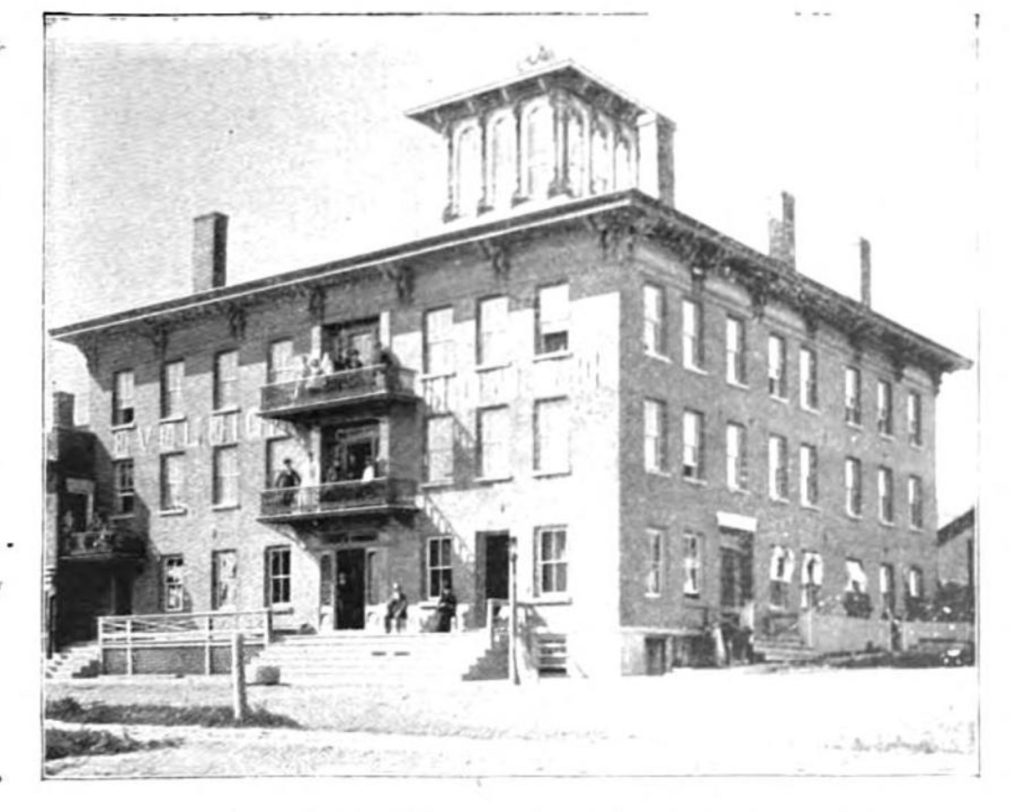
Aiding in tourism was the best fishing grounds upon the lake or river. L. H. Collins kept oarsman at standby to accommodate fishing parties, guests venturing across the bay, or to the Thousand Islands described as “the romantic islands.” The Eveleigh House, with its lookout cupola, provided tourists with headquarters for their recreation needs, boasting unparalleled views of the lake, bay, Henderson Harbor, Pillar Point, Point Peninsula, Dexter, and Rutland Hill.
Collins eventually went back to Point Peninsula in 1878, and the Eveleigh House was managed by James Galloway until 1882, when Barney Eveleigh became proprietor. A decade later, Eveleigh repainted and repapered all 30 bedrooms, converted the public parlor into a reading room, and moved the parlor to the second floor.
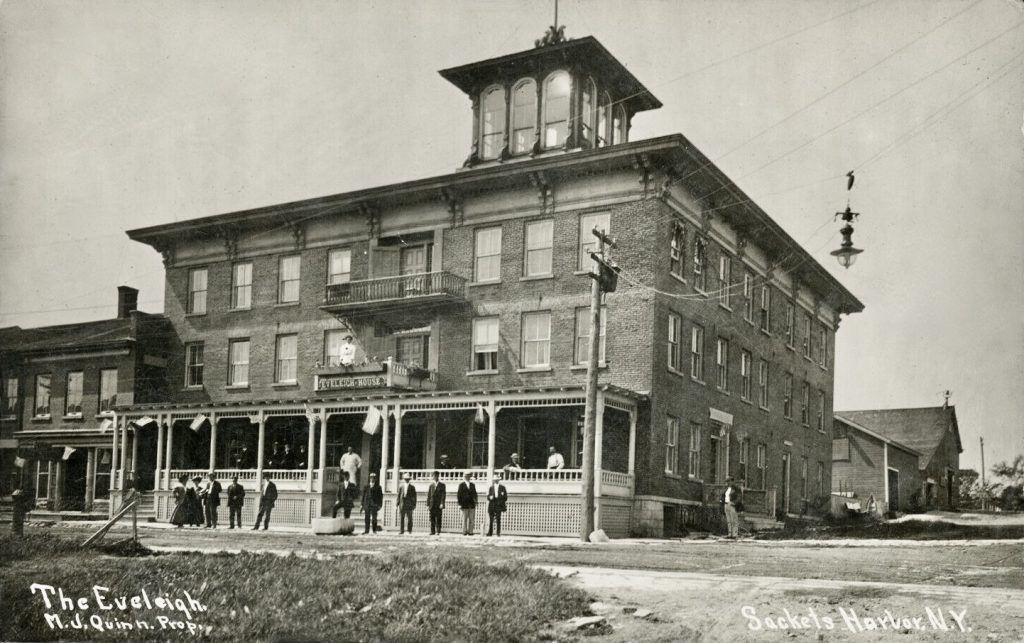
Ironically, the Eveleigh House’s business began to decline in the years leading up to its destruction by fire, despite its being the only hotel in Sackets Harbor after The Earl perished in a fire in 1900. The Watertown Daily Times reported of the January 5, 1920 blaze that destroyed the Eveleigh House–
Although the hotel had changed hands many times it had always been in good condition. Owing to age the lumber was very dry and the practice of oiling the floors once a month which had been followed for many years had left them almost oil soaked, so that when the fire got started there was practically no change of getting it under control.
(The) fire which was discovered at 3:15 Sunday morning in the cellar of the Eveleigh House by M. J. Quinn, proprietor, resulted in the death of one person, serious injuries to five others, slight injuries to nearly a score of others and a property loss of approximately $28,000.
William McClaughlin, aged 81, was killed in the fire, while Miss Anne E. Benedict broke her right leg in two places. Miss Maude A. Barber had her hand severely cut and arm burned. M. J. Quinn burned his face and singed his eyebrows, while suffering burns on his arms and hands and his wife was bruised and shaken. Henry Fairfield bruised and cut his hand and slightly injured his legs.
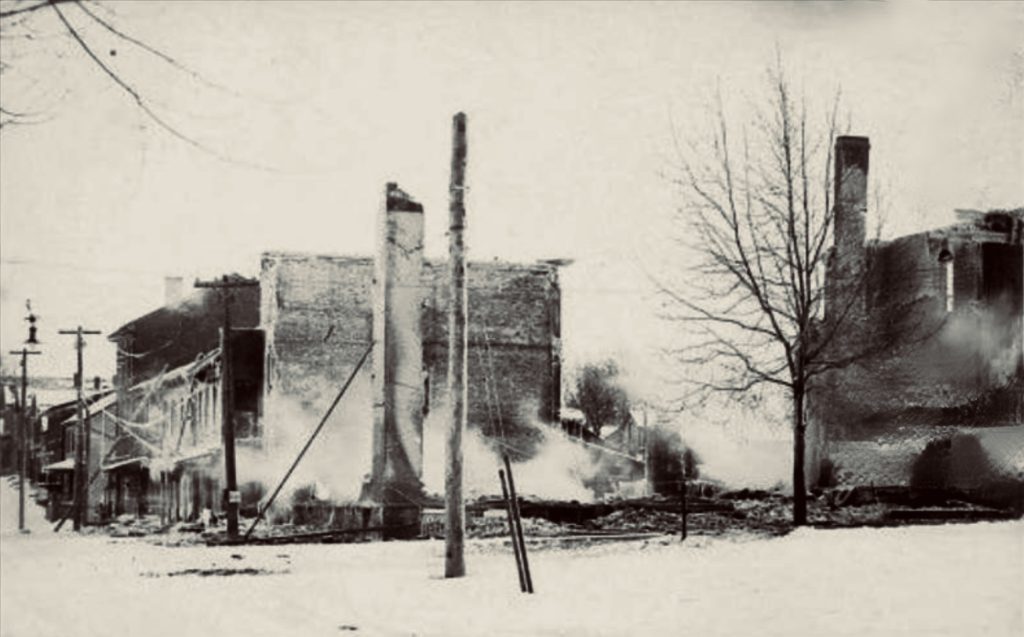
The fire claimed one life, 81-year-old William McLaughlin, who suffered burns and was forced to jump from his window. The blaze also destroyed two stores and left two families homeless.
The fire, according to villagers, would have wiped out Main Street if it weren’t for the 63rd Infantry at Madison Barracks and Company No. 2 of the Watertown Fire Department. An explosion of coal gas in the basement was blamed for the fire. Mr. Quinn had filled the furnace the prior evening due to the cold, but instead of the gas going up the chimney, it settled in the cellar due to a lack of air movement (and possibly atmospheric pressure.)
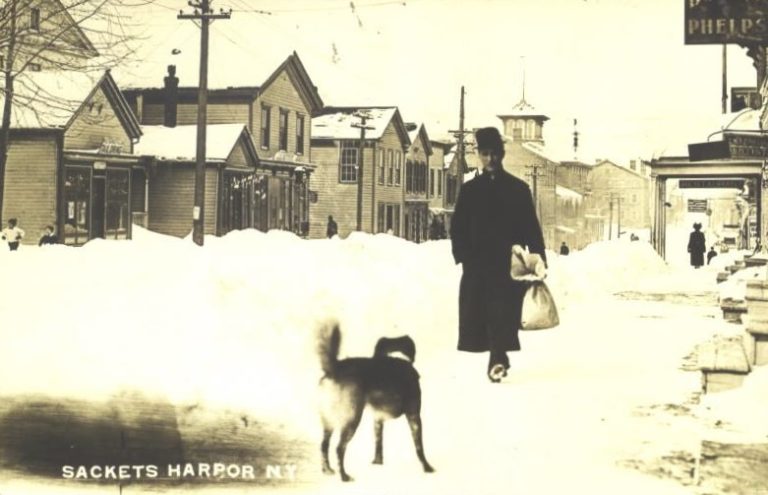
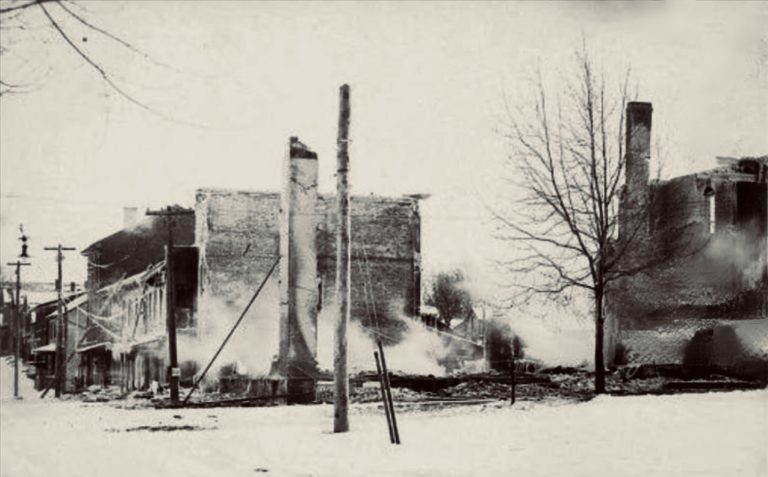
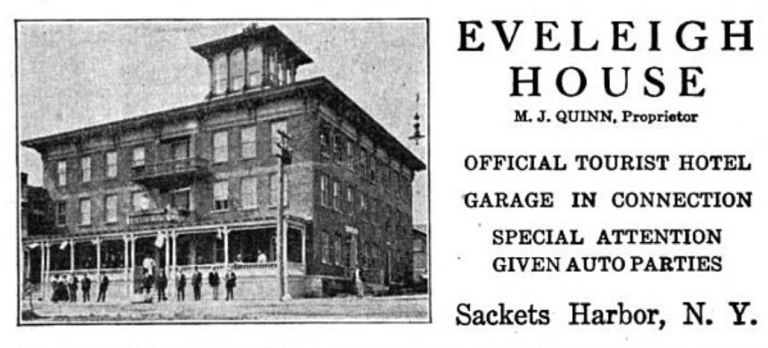
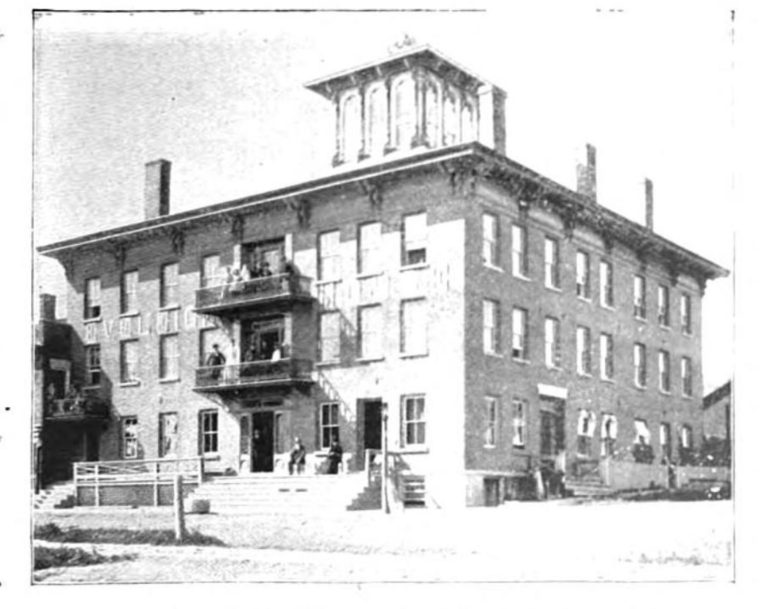
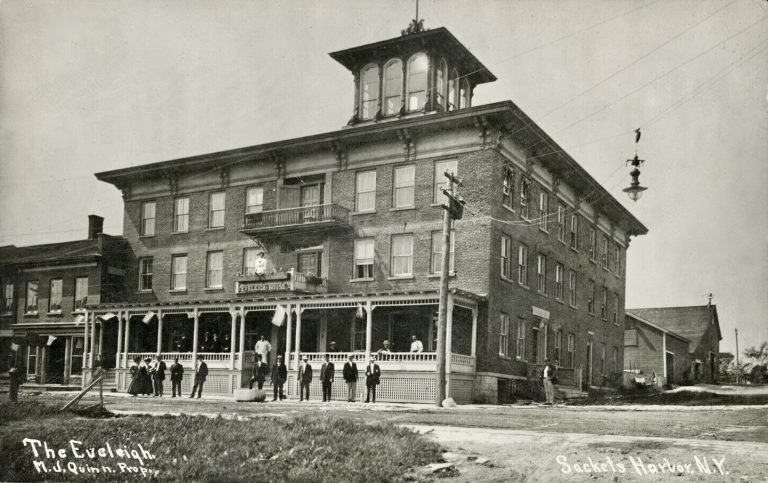















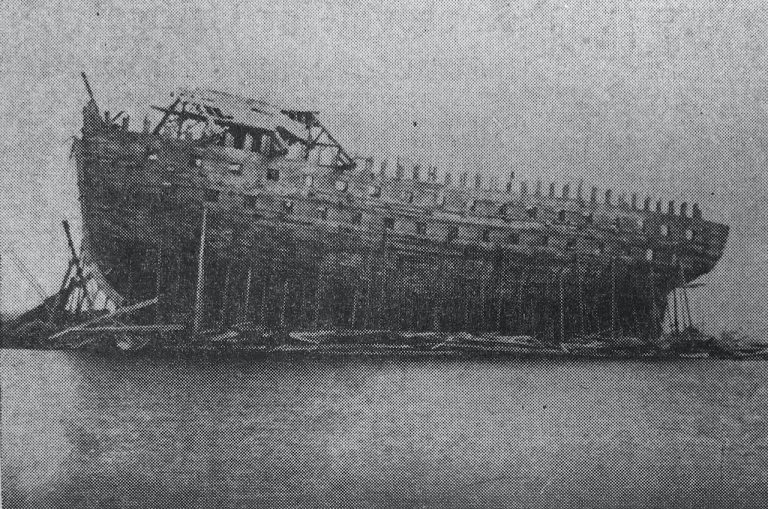
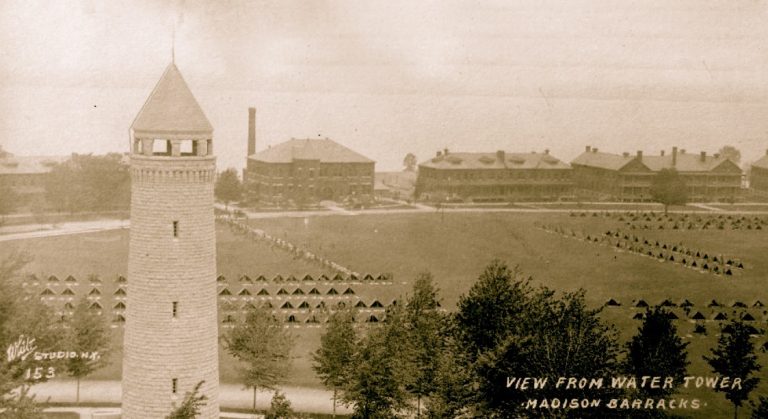


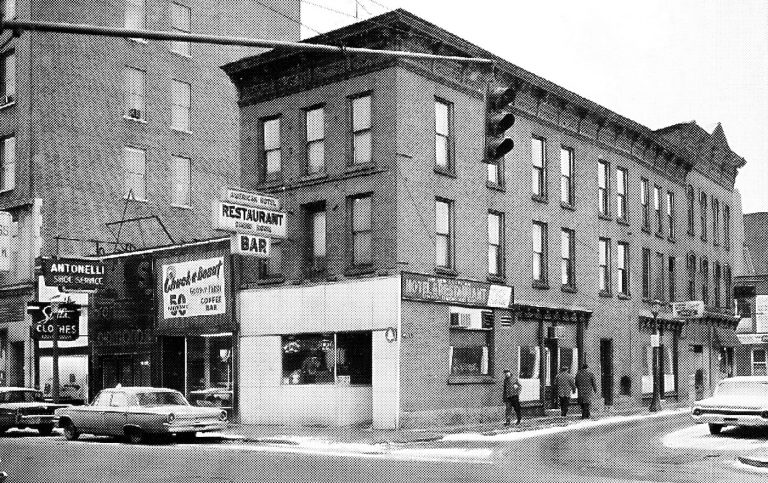
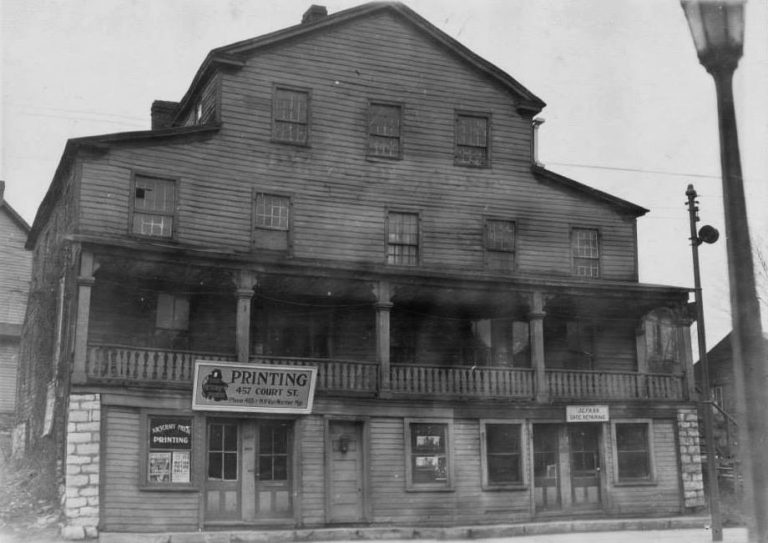
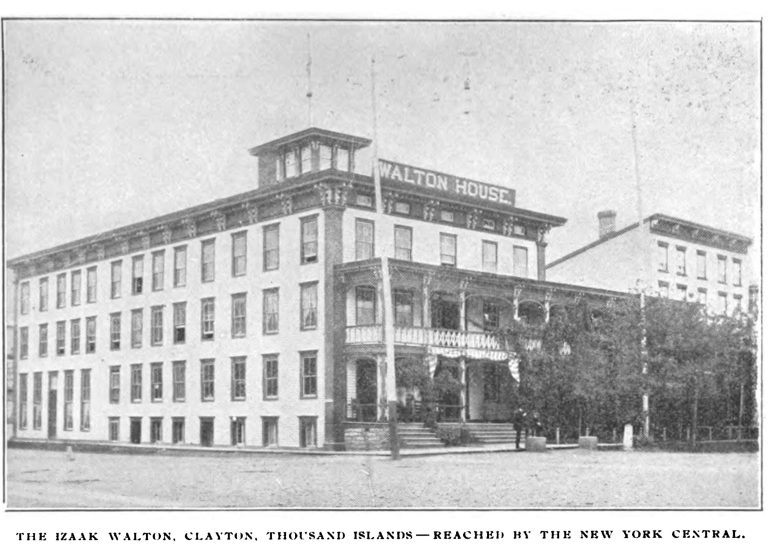

1 Reviews on “Eveleigh House – Sackets Harbor (1844 – 1920)”
Sackets harbor was to us a chance to enjoy a meal that was always enjoyable and filling. It also allowed us a chance to visit a place that took us back to a time when life was much simpler as well as being much harsher. I can only imagine how difficult it must have been to attempt extinguishing a fire of that magnitude during that time of the year! The governing members of sackets harbor have done a great job of maintaining the towns quaintness, yet have the amenities modern Americans expect to continue to attract visitors. The state, and federal government protecting the battlefield and grounds that were where the war of 1812, took place and is an important part of American history. Something all Americans should be made aware of, and to appreciate. Seeing the reenactment of the battle, one can begin to imagine what a very important place Sacketts Harbor is and will remain, as long as local, state, and federal government protect and preserve this important historical site!